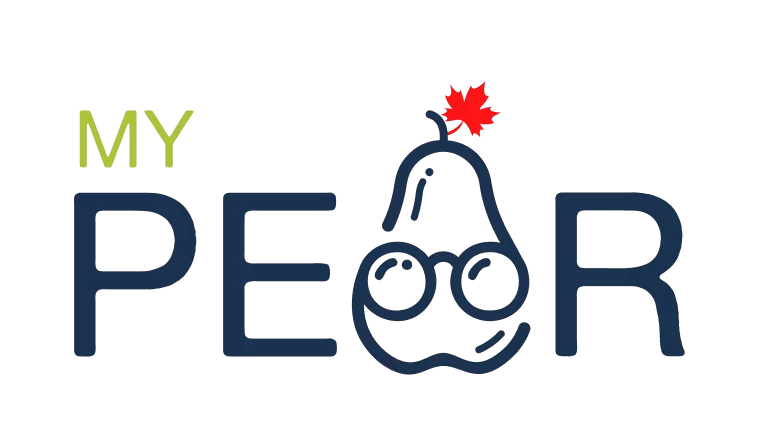Lutein is a carotenoid, a natural pigment found in plants, and an essential nutrient for human beings. It is a type of antioxidant that has been shown to be effective in maintaining and enhancing eye health. Its consumption is incredibly important as the body doesn’t naturally synthesize it. It can only be obtained through the food one eats or supplementation.
The primary role of lutein in the body is to protect the eyes from oxidative stress that may occur from exposure to blue light, environmental pollutants, and other factors. It is stored in the macula, a small structure found in the center of the retina that is responsible for central vision. The macula is a vital part of the eye, and this is why lutein is essential in maintaining healthy eyes.
Studies have shown that lutein has numerous benefits for overall health, including reducing the risk of chronic diseases such as cardiovascular disease and cancer. However, it is its role in maintaining good eye health that is most well-known. Age-related macular degeneration (AMD) is an eye condition that often occurs in older adults and can lead to blindness. Research has shown that people who consume higher amounts of lutein have a lower risk of developing AMD.
In conclusion, lutein plays a crucial role in maintaining good eye health. It is essential to include lutein in one’s diet or supplement regime to enjoy its health benefits fully. Given that the human body does not naturally synthesize lutein, it is important to consume foods that contain lutein, such as leafy vegetables, egg yolks, and colorful fruits. In addition, lutein supplements are available for individuals who want to improve their eye health.
What Are The Benefits Of Lutein For Eye Health?
Lutein is a carotenoid that belongs to the family of xanthophylls. It is a yellow pigment that is commonly found in the macula of the eye, where it plays a vital role in maintaining eye health. Lutein is a powerful antioxidant that helps to protect the eyes from oxidative damage caused by free radicals.
Here are some of the key benefits of lutein for eye health:
1. Prevents macular degeneration: Lutein helps to prevent age-related macular degeneration (AMD), which is a leading cause of blindness among older adults. AMD occurs when the macula, which is responsible for central vision, becomes damaged.
2. Protects against cataracts: Lutein can help to protect the eyes against cataracts, which is a clouding of the eye’s lens that leads to vision loss.

3. Reduces eye inflammation: Lutein has anti-inflammatory properties that can help to reduce eye inflammation and promote eye health.
4. Improves visual acuity: Lutein has been shown to improve visual acuity and contrast sensitivity, which is the ability to distinguish fine details.
5. Filters blue light: Lutein helps to filter out harmful blue light, which can damage the retina over time.
How Much Lutein Should I Take For My Eyes?
The amount of lutein that you need for your eyes depends on your age, gender, and overall health. The recommended daily intake of lutein for eye health is 10 mg. However, some studies suggest that higher doses of lutein may be more effective in preventing eye diseases.
If you are considering taking lutein supplements, it is important to speak with your doctor first. They can help you determine the appropriate dosage for your specific needs.
What Foods Are High In Lutein For My Eyes?
While lutein supplements are available, it is always best to get your nutrients from whole foods. Here are some of the best food sources of lutein for eye health:
1. Leafy greens: Spinach, kale, collard greens, and mustard greens are all high in lutein.
2. Broccoli: This cruciferous vegetable is also a great source of lutein.
3. Eggs: The yolks of eggs contain lutein, so be sure to keep them in your diet.

4. Corn: Yellow corn is particularly high in lutein.
5. Orange peppers: These brightly colored vegetables are high in both lutein and zeaxanthin.
Does Lutein Help Prevent Age-Related Macular Degeneration?
Yes, lutein can help to prevent age-related macular degeneration. The macula contains high levels of lutein, which helps to protect the retina from oxidative damage. Studies have shown that individuals with a high intake of lutein have a lower risk of developing AMD.
What Is The Difference Between Lutein And Zeaxanthin?
Lutein and zeaxanthin are both carotenoids that are important for eye health. While lutein is found mainly in the macula, zeaxanthin is found in high concentrations in the center of the macula. Both nutrients help to protect the eyes from oxidative damage and reduce the risk of eye diseases.
Can Lutein Improve My Vision?

Yes, lutein can improve your vision. Studies have shown that lutein supplementation can improve visual acuity and contrast sensitivity, which is the ability to distinguish fine details.
How Long Does It Take For Lutein To Work For My Eyes?
The time it takes for lutein to work for your eyes depends on the individual and their specific condition. Some people may notice an improvement in their vision within a few weeks of starting lutein supplementation, while others may take longer to see results.
Is Lutein Safe For Me To Take?
Yes, lutein is considered safe for most individuals to take. However, like any supplement, it is important to speak with your doctor before starting lutein supplementation. They can help you determine the appropriate dosage and ensure that it is safe for you to take.
Can Lutein Improve Night Vision?
There is some evidence to suggest that lutein may improve night vision. This is because lutein helps to protect the eyes from oxidative damage and filters out blue light, which can interfere with vision in low-light conditions.
What Are The Side Effects Of Taking Lutein?
Lutein is generally well-tolerated and does not cause any serious side effects. However, some individuals may experience mild digestive symptoms like nausea, diarrhea, or stomach pain.
Can Lutein Help With Dry Eyes?
Yes, lutein may help to improve symptoms of dry eyes. A study published in the American Journal of Clinical Nutrition found that women who consumed high levels of lutein and zeaxanthin had a reduced risk of dry eye syndrome.
Are There Any Drug Interactions With Lutein?
There are currently no known drug interactions with lutein. However, it is always important to speak with your doctor before starting any new supplement to ensure that it is safe for you to take.
Is Lutein Beneficial For People With Cataracts?
Yes, lutein is beneficial for people with cataracts. Cataracts are caused by oxidative damage to the eye’s lens, and lutein can help to protect the eyes from this type of damage. Studies have shown that lutein supplementation can improve visual function in individuals with cataracts.
What Is The Recommended Daily Intake Of Lutein For Eye Health?
The recommended daily intake of lutein for eye health is 10 mg. This can be obtained through a combination of diet and supplementation, depending on an individual’s specific needs. It is always important to speak with your doctor before starting any new supplement or making changes to your diet.
Conclusion
In conclusion, Lutein is a crucial nutrient for maintaining healthy eyesight and preventing various eye-related conditions. The antioxidant properties of Lutein protect the eyes from harmful blue light, oxidative stress, and inflammation, which are known to cause various eye diseases.
Studies have also shown that Lutein supplementation can improve visual function, reduce the progression of age-related macular degeneration (AMD), and alleviate symptoms of computer vision syndrome. Therefore, incorporating Lutein-rich foods like leafy green vegetables, eggs, and orange-colored fruits into the diet, or taking Lutein supplements, can significantly benefit overall eye health.
Overall, Lutein is a safe and effective way to support visual wellness and protect the eyes from potential damage caused by various environmental and lifestyle factors. Therefore, it is important to include Lutein in one’s diet or consider taking supplements to maintain good eye health and prevent various eye diseases.
Here are some of the key benefits of lutein for eye health:
1. Prevents macular degeneration: Lutein helps to prevent age-related macular degeneration (AMD), which is a leading cause of blindness among older adults. AMD occurs when the macula, which is responsible for central vision, becomes damaged.
2. Protects against cataracts: Lutein can help to protect the eyes against cataracts, which is a clouding of the eye's lens that leads to vision loss.
3. Reduces eye inflammation: Lutein has anti-inflammatory properties that can help to reduce eye inflammation and promote eye health.
4. Improves visual acuity: Lutein has been shown to improve visual acuity and contrast sensitivity, which is the ability to distinguish fine details.
5. Filters blue light: Lutein helps to filter out harmful blue light, which can damage the retina over time.
"}},{"@type": "Question", "name": "How Much Lutein Should I Take For My Eyes?","acceptedAnswer": {"@type": "Answer","text": "The amount of lutein that you need for your eyes depends on your age, gender, and overall health. The recommended daily intake of lutein for eye health is 10 mg. However, some studies suggest that higher doses of lutein may be more effective in preventing eye diseases.
If you are considering taking lutein supplements, it is important to speak with your doctor first. They can help you determine the appropriate dosage for your specific needs.
"}},{"@type": "Question", "name": "What Foods Are High In Lutein For My Eyes?","acceptedAnswer": {"@type": "Answer","text": "While lutein supplements are available, it is always best to get your nutrients from whole foods. Here are some of the best food sources of lutein for eye health:
1. Leafy greens: Spinach, kale, collard greens, and mustard greens are all high in lutein.
2. Broccoli: This cruciferous vegetable is also a great source of lutein.
3. Eggs: The yolks of eggs contain lutein, so be sure to keep them in your diet.
4. Corn: Yellow corn is particularly high in lutein.
5. Orange peppers: These brightly colored vegetables are high in both lutein and zeaxanthin.
"}},{"@type": "Question", "name": "Does Lutein Help Prevent Age-Related Macular Degeneration?","acceptedAnswer": {"@type": "Answer","text": "Yes, lutein can help to prevent age-related macular degeneration. The macula contains high levels of lutein, which helps to protect the retina from oxidative damage. Studies have shown that individuals with a high intake of lutein have a lower risk of developing AMD.
"}},{"@type": "Question", "name": "What Is The Difference Between Lutein And Zeaxanthin?","acceptedAnswer": {"@type": "Answer","text": "Lutein and zeaxanthin are both carotenoids that are important for eye health. While lutein is found mainly in the macula, zeaxanthin is found in high concentrations in the center of the macula. Both nutrients help to protect the eyes from oxidative damage and reduce the risk of eye diseases.
"}},{"@type": "Question", "name": "Can Lutein Improve My Vision?","acceptedAnswer": {"@type": "Answer","text": "
Yes, lutein can improve your vision. Studies have shown that lutein supplementation can improve visual acuity and contrast sensitivity, which is the ability to distinguish fine details.
"}},{"@type": "Question", "name": "How Long Does It Take For Lutein To Work For My Eyes?","acceptedAnswer": {"@type": "Answer","text": "The time it takes for lutein to work for your eyes depends on the individual and their specific condition. Some people may notice an improvement in their vision within a few weeks of starting lutein supplementation, while others may take longer to see results.
"}},{"@type": "Question", "name": "Is Lutein Safe For Me To Take?","acceptedAnswer": {"@type": "Answer","text": "Yes, lutein is considered safe for most individuals to take. However, like any supplement, it is important to speak with your doctor before starting lutein supplementation. They can help you determine the appropriate dosage and ensure that it is safe for you to take.
"}},{"@type": "Question", "name": "Can Lutein Improve Night Vision?","acceptedAnswer": {"@type": "Answer","text": "There is some evidence to suggest that lutein may improve night vision. This is because lutein helps to protect the eyes from oxidative damage and filters out blue light, which can interfere with vision in low-light conditions.
"}},{"@type": "Question", "name": "What Are The Side Effects Of Taking Lutein?","acceptedAnswer": {"@type": "Answer","text": "Lutein is generally well-tolerated and does not cause any serious side effects. However, some individuals may experience mild digestive symptoms like nausea, diarrhea, or stomach pain.
"}},{"@type": "Question", "name": "Can Lutein Help With Dry Eyes?","acceptedAnswer": {"@type": "Answer","text": "Yes, lutein may help to improve symptoms of dry eyes. A study published in the American Journal of Clinical Nutrition found that women who consumed high levels of lutein and zeaxanthin had a reduced risk of dry eye syndrome.
"}},{"@type": "Question", "name": "Are There Any Drug Interactions With Lutein?","acceptedAnswer": {"@type": "Answer","text": "There are currently no known drug interactions with lutein. However, it is always important to speak with your doctor before starting any new supplement to ensure that it is safe for you to take.
"}},{"@type": "Question", "name": "Is Lutein Beneficial For People With Cataracts?","acceptedAnswer": {"@type": "Answer","text": "Yes, lutein is beneficial for people with cataracts. Cataracts are caused by oxidative damage to the eye's lens, and lutein can help to protect the eyes from this type of damage. Studies have shown that lutein supplementation can improve visual function in individuals with cataracts.
"}},{"@type": "Question", "name": "What Is The Recommended Daily Intake Of Lutein For Eye Health?","acceptedAnswer": {"@type": "Answer","text": "The recommended daily intake of lutein for eye health is 10 mg. This can be obtained through a combination of diet and supplementation, depending on an individual's specific needs. It is always important to speak with your doctor before starting any new supplement or making changes to your diet.
"}},{"@type": "Question", "name": "Conclusion","acceptedAnswer": {"@type": "Answer","text": "In conclusion, Lutein is a crucial nutrient for maintaining healthy eyesight and preventing various eye-related conditions. The antioxidant properties of Lutein protect the eyes from harmful blue light, oxidative stress, and inflammation, which are known to cause various eye diseases.
Studies have also shown that Lutein supplementation can improve visual function, reduce the progression of age-related macular degeneration (AMD), and alleviate symptoms of computer vision syndrome. Therefore, incorporating Lutein-rich foods like leafy green vegetables, eggs, and orange-colored fruits into the diet, or taking Lutein supplements, can significantly benefit overall eye health.
Overall, Lutein is a safe and effective way to support visual wellness and protect the eyes from potential damage caused by various environmental and lifestyle factors. Therefore, it is important to include Lutein in one's diet or consider taking supplements to maintain good eye health and prevent various eye diseases. "}}]}



